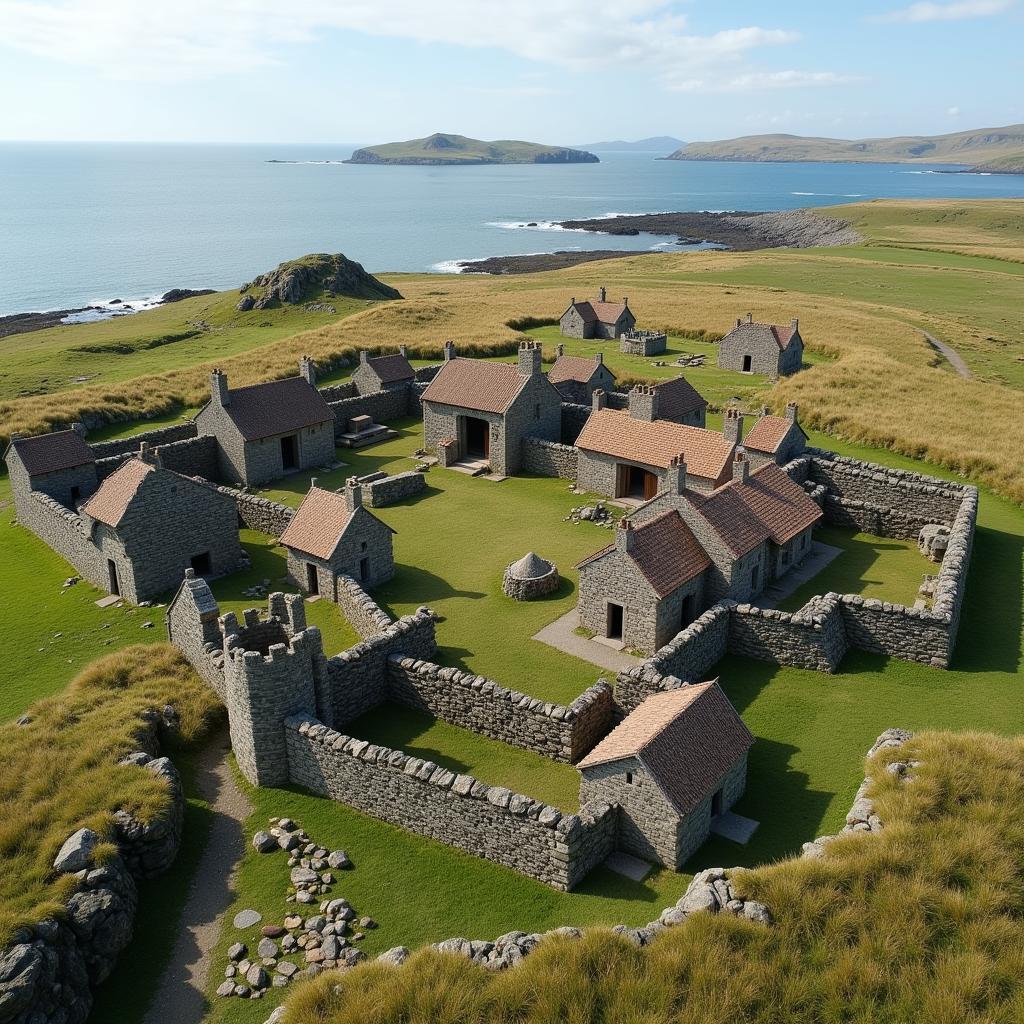The Viking Explorer Society, a fascinating chapter in human history, left an indelible mark on the world. From daring voyages across uncharted oceans to establishing settlements in distant lands, the Vikings’ impact resonated far beyond their Scandinavian homelands. This article delves into the captivating world of Viking exploration, examining their motivations, navigational skills, and the societal structures that propelled their extraordinary journeys.
The Driving Forces Behind Viking Exploration
What compelled these Norse seafarers to embark on such perilous expeditions? Several factors intertwined to create the impetus for Viking expansion. Overpopulation in Scandinavia, coupled with limited arable land, pushed many Vikings to seek new territories. The allure of wealth, whether through trade or raiding, was another potent motivator. Furthermore, Viking society prized courage, exploration, and the acquisition of glory, making seafaring a natural outlet for ambition and social advancement.
The thirst for adventure and the desire to test their limits also played a significant role. Viking sagas and legends recount tales of daring explorers who ventured into the unknown, driven by a sense of curiosity and a desire to leave their mark on the world. This cultural emphasis on exploration fostered a spirit of innovation and resilience, essential qualities for navigating the treacherous waters of the North Atlantic.
Navigational Prowess of the Viking Explorer Society
How did the Vikings navigate vast oceans without modern instruments? Their navigational skills were a marvel of their time. They relied on a combination of celestial navigation, using the sun and stars as guides, and meticulous observation of natural phenomena. The Vikings were adept at reading the wind, currents, and wave patterns, using this knowledge to chart their course across the open sea.
Furthermore, they developed sophisticated tools like the sunstone, a type of crystal that helped determine the sun’s position even on cloudy days. Their knowledge of coastal landmarks and bird migration patterns further aided their navigation, enabling them to traverse vast distances with remarkable accuracy.
Viking Society: A Foundation for Exploration
The structure of Viking society played a crucial role in facilitating their explorations. The decentralized nature of Viking communities, with their emphasis on individual initiative and leadership, encouraged ambitious individuals to organize and lead expeditions. The strong sense of community and shared identity fostered cooperation and resource pooling, enabling them to build and equip the iconic longships that carried them across the seas.
The Role of the Longship in Viking Exploration
The Viking longship, a masterpiece of nautical engineering, was instrumental to their success as explorers. Its shallow draft allowed it to navigate rivers and coastal waters, while its robust construction enabled it to withstand the rigors of the open ocean. The versatile design of the longship facilitated both raiding and trading, making it a symbol of Viking power and adaptability.
 Viking Settlement in L'Anse aux Meadows, Newfoundland
Viking Settlement in L'Anse aux Meadows, Newfoundland
Conclusion: The Enduring Legacy of the Viking Explorer Society
The Viking explorer society’s legacy extends far beyond their voyages of discovery. Their explorations broadened geographical knowledge, established trade routes, and led to the founding of new settlements across the globe. Their seafaring prowess, navigational skills, and societal structure all contributed to their enduring impact on history. The Viking explorer society continues to capture our imagination, reminding us of the human spirit’s inherent drive to explore, discover, and leave its mark on the world.
FAQ
- What were the main reasons for Viking exploration?
- How did Vikings navigate without modern technology?
- What was the importance of the longship in Viking exploration?
- How did Viking society contribute to their exploration efforts?
- What is the lasting legacy of the Viking explorer society?
- What were some of the key destinations of Viking explorers?
- How did Viking exploration impact the cultures they encountered?
Need assistance? Contact us 24/7: Phone: 02043854663, Email: [email protected], or visit us at Zone 34, Bac Giang, 260000, Vietnam.